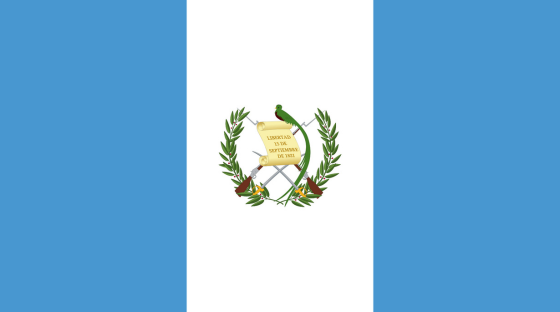Guatemala

Overview
A biodiversity hotspot, modern Guatemala was once at the core of the Mayan civilization and still retains strong traces of Spanish colonization dating back to the 16th century. Today, tourism is the main driver of the economy. In 2024, the Guatemalan Tourism Institute (Inguat) aims to attract an additional 1.5 million foreign visitors, a 58% increase from the previous year.
A nascent tech sector has produced some entrepreneurial success stories, including one of the first online reservation sites targeting Spanish-speaking internet users and the language-learning app Duolingo.
Solid economic growth is forecast for the year ahead and inflation cooled to a two-year low in early 2024. However, the current El Niño weather pattern is expected to persist until mid-year. Heavy rains in late 2023 caused significant damage to homes and other infrastructure in the northeast of the country, which is rated as highly vulnerable to climate change.
The Accelerance Global Network is the most curated list of high-quality global teams ever assembled.
45
Developers
Total number of developers in our certified partner network by country
2
Certified Partners
Total number of certified partners in our global network by country.
4.5hrs
Time Travel (From NY)
Average flight time from NY to the major cities in the country.
40
Partner Innovation capability
The score reflects investment in STEM progrms and IT funding by country.
83
Partner Skill Level
Level of workforce skills and quality of education, including factors such as digital literacy, interpersonal skills, etc.
60
Partner Global Competitiveness
National productivity based on 12 core pillars, including government policy, infrastructure, economic stability, etc.
Medium
Software Outsourcing Readiness
Overall rating, based on the maturity of the tech sector, socio-political conditions, and on-the-ground research by Accelerance.

Talent Pool & Education
Although Guatemala's tech ecosystem is in the early stages of development, there has been unprecedented growth in the country’s startup culture, specifically in fintech, which quadrupled between 2017 and 2021. Two key government institutions have been established to guide policy development and implementation for Guatemala’s digital economy: the National System on Science and Technology and the National Secretariat of Science and Technology.
With the largest youth population in Latin America and among countries with the most early-stage entrepreneurial activity in the world, Guatemala has the formula for a strong digital talent pool and initiatives are underway to close the gap between supply and demand. Universidad Galileo – one of 16 universities in the capital, Guatemala City – is recognized by MIT (the Massachusetts Institute of Technology) as one of the leading tech education institutions in the world. In 2015, it became the first university in the country to join the US online education platform edX and tap into its massive open online course (MOOC) model. Many local universities now offer ICT curricula. Universidad del Valle and Universidad Francisco Marroquín are also known for providing high-quality education in business administration.
Initiatives targeted at the entrepreneurial ecosystem include pre-accelerator programs Heuristika (from the University Francisco Marroquin) and Multiverse, incubator hub Tec Guatemala headquartered in Guatemala City, and two Selina locations that are part of a global network aimed at digital nomads.
Language
Spanish is the most widely spoken, but 23 other languages are officially recognized, nearly all of them of Mayan origin and spoken by about 40% of the people as a first language. Locals speak and understand limited English outside the main centers, such as the capital Guatemala City, and the former colonialist capital Antigua, a popular tourist destination. More proficient English is spoken in the business sector.
.png?width=600&height=375&name=Untitled%20design%20(36).png)
Economic Outlook
Guatemala is the largest economy in Central America and had one of the smallest contractions in the Latin America and Caribbean region during the pandemic. FocusEconomics forecasts accelerated growth in 2024, owing in part to a gradual economic recovery in the US, the country’s biggest export market. Record high remittances have also boosted private consumption.
The country’s over-dependence on remittances causes it own problems, with high emigration driven by persistent poverty and inequality rates, gaps in access to basic services, limited employment, and extreme weather events that have destroyed infrastructure and reduced agricultural output. However, the World Bank believes Guatemala has “enormous potential” to generate growth and prosperity. Rich in natural resources and biodiversity, its proximity to the US provides significant tourism and nearshoring opportunities.
The private sector has expressed interest in collaborating with incoming president Bernardo Arévalo “new vision for development” based on strong social and economic investment. After his election victory in early 2024, Arévalo traveled to the US to meet business leaders with the Partnership for Central America (PCA), to explore areas for collaboration aimed at promoting inclusive economic growth in Guatemala, which could help curb migration.
Political Conditions
Supporters of the pro-democracy movement flocked to the capital Guatemala City in January 2024 to celebrate Bernardo Arevalo taking office as the country’s new president. The son of former president Juan Jose Arevalo, who ushered in progressive reforms in the late 1940s, ran on an anti-corruption platform that drew widespread support, with a focus on strong social and economic investment.
Despite his landslide election win, the country’s long-ruling elite and a conservative-leaning Congress had blocked a transfer of power to Arevalo. The United States, the European Union, and the Organization of American States had issued messages of support, calling for him to be sworn in. “Arevalo represents a new spring for the country,” a local resident told Al Jazeera. “We need this to happen right now.”
Arevalo’s Seed Movement party, which arose from widespread anti-corruption protests in 2015, also won the presidency of a divided Congress, giving it influence in shaping the body’s agenda. In a speech after taking office, the 65-year-old diplomat-turned-politician pledged to expand Guatemalans’ access to healthcare and education, citing climate changes that are intensifying drought-flood cycles as the country’s most critical and urgent challenge. He also acknowledged the “historic debt” that Guatemala owes to its Indigenous peoples.
Learn more about our customer stories.
Looking for a customer story in a specific technology or industry? Discover compelling customer narratives within a specific technology or industry that resonate with your unique software development needs.

%20(1).png?width=300&name=WEBSITE%20Stop%20Chasing%20Low%20Hourly%20Rates%20Unlock%20the%20True%20Value%20of%20Offshore%20Development%20(450%20x%20253%20px)%20(1).png)




